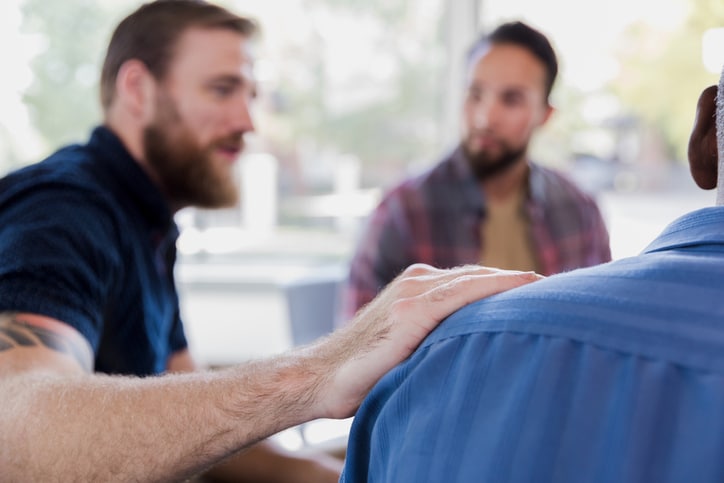Mental health first aid is being highlighted during Veterans’ Health Week (24 October-1 November), with members of the ex-service community encouraged to undergo training to become a mental health first aider.
Veterans’ Affairs Minister Darren Chester said the training offers veterans and those who support them the tools to identify changes in someone and to respond appropriately.
“Family members, friends and colleagues are often the first to notice subtle changes in someone’s behaviour, and training in mental health first aid or suicide intervention equips them with the skills and confidence to identify signs, start a conversation and encourage them to seek professional help.”
National manager of Open Arms: Veterans & Families Counselling, Dr Stephanie Hodson, says mental health first aid is an opportunity to learn about how to recognise common mental health issues in family members, friends or work colleagues.
Dr Hodson says mental health first aid training includes an understanding of what can cause mental health conditions and how these might be identified, as well as learning to identify if you or someone around you might be in need of assistance.
“What to do, how to have a conservation with that person and then how to help them get a referral [for further support].
“I think that because military service does have unique challenges … as people come back from doing an operational deployment or maybe doing a bushfire recovery type activity, it’s really good for their community to recognise when they’re not doing so well,” she says.
The training isn’t just for ex-service men and women or those who support them. Dr Hodson says anyone can benefit from the training, which is currently offered in partnership with the Returned Services League (RSL) and ex-service organisations around the country.
Lifeline Canberra CEO, Carrie Leeson, says “when it comes to mental illness, no one is immune”.
“Now more than ever we are seeing heightened anxiety and uncertainty in the community. Whether in our own lives, or through osmosis, this anxiety is creating a mental health challenge we’ve never before seen.”
Training courses are offered by a number of organisations around the country, including Lifeline.
Ms Leeson says mental health training, first aid or awareness training, much like in a physical first aid training course, provides individuals with the skills and the confidence to assist in a crisis, until the crisis resolves or the appropriate professional help is received.
She says there is “real benefit” in having these skills out there in the community with heightened and widespread anxiety due to COVID-19, made more complex by this year’s smoke, storms and bushfires.
“Everyone would benefit from education in mental health awareness and mental health first aid. Just imagine the impact if everyone in our community carried the skills and confidence to have tough conversations.”
If you need someone to talk to: Lifeline 13 11 14; Open Arms: Veterans & Families Counselling 1800 011 046; Kids Helpline 1800 551 80; Beyond Blue 1300 22 46 36.



